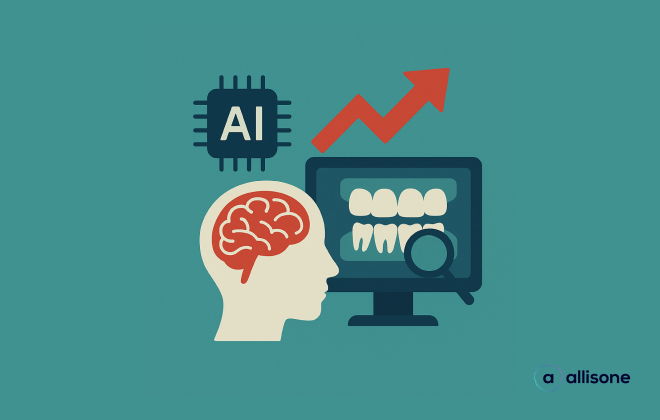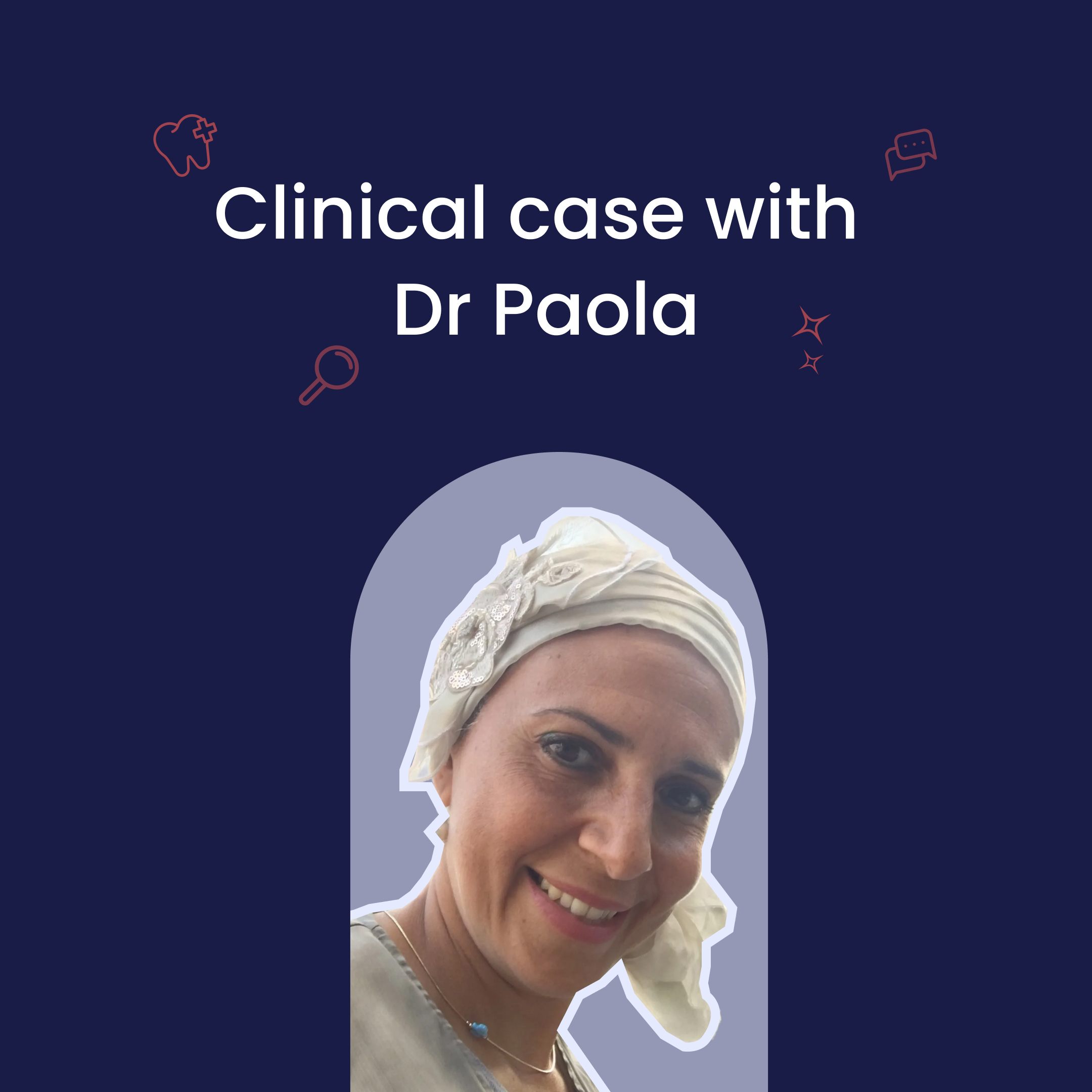Artificial intelligence: its areas of application in medicine and dentistry in 2022

What is AI and what are its areas of application in medicine in general and in dentistry in particular? Focus on these technologies that are about to revolutionize the lives of practitioners and their patients.
Diagnostic assistance, therapeutic planning, patient monitoring: artificial intelligence applications are developing and gradually demonstrating their efficiency in improving medicine. In the near future, they will undoubtedly be at the heart of the daily practice of caregivers and the lives of their patients.
The Covid-19 crisis as a booster for AI in healthcare
The Covid-19 health crisis has undeniably acted as a catalyst for innovation in the medical AI sector. Since the beginning of the pandemic, scientific communities around the world have mobilized, sharing experiences and knowledge. These exchanges and transparency have notably fed AI algorithms for imaging, allowing support for diagnosis and quantification of the disease's impact on patients. This is indeed the case in the detection of melanoma, breast cancer and Alzheimer's disease.
Overall, AI is already contributing to medical advances in four ways:
AI for diagnostic assistance
Intelligent agents (these autonomous AI-derived entities) can learn to make rapid, early and accurate diagnoses. They are already achieving results that are equivalent or even superior to human capabilities. This saves time, significantly reduces diagnostic errors and enables faster treatment of diseases. In the case of breast cancer, beyond image analysis, Artificial Intelligence is able to cross-reference image data with personal data (age, family history, etc.) allowing for preventive and personalized treatment based on other patient data with the same characteristics.
AI and robotic surgery
It is in this field that health AI is growing the most and the fastest. Although the robots are still controlled and piloted by the surgeon,the amplification and optical recognition systems developed surpass human capabilities. The result: less invasive, faster and more precise surgery.
AI in helping to develop new drugs
AI allows the collection and analysis of very large amounts of data in a very short time. The analysis of multi-parametric data, from large population panels, allows new therapeutic hypotheses to be formulated and new candidates to be identified. The result is an accelerated and more efficient biomedical research process.
AI to facilitate the patient journey and the work of caregivers
Administrative red tape can have significant consequences for patients and healthcare staff, resulting in lost time and even medical errors. The deployment of AI contributes to the fluidity and security of administrative management steps, freeing up precious time for caregivers who can focus on care. In hospitals, Artificial Intelligence can intervene at many levels: cybersecurity management, staff scheduling management, patient follow-up management, supply flow management, inventory management, patient flow management and even no-show prediction. Indeed, in the United States, a study has shown that AI would be able to assess the probability of no-shows with a scoring mechanism and implement a predictive analysis methodology to determine no-shows in real time by cross-referencing various data to recontact the patients concerned and propose other available slots.
Data structuring at the heart of the issues
AI is developing to make medical practice more efficient and accessible, with the key to improved patient care and greater comfort for practitioners. Among the applications that cannot be ignored, let's mention Galeon: this French platform has been evolving for 5 years with the objective of structuring health data (2500 billion Gigabytes have been produced in 2020). This Big Data is the basis of all artificial intelligence and, if organized, can be used to build fundamental bridges between healthcare institutions, practitioners and patients.
AI at the heart of dentistry today and tomorrow
In dentistry too, AI is proving its worth and supporting professionals in their practice. Among the tools already in place, there is of course AllisoneAI, which, thanks to the use of deep neural networks trained on millions of dental radiographic images, offers practitioners an effective communication tool for their patients . Indeed, by their accessible visual transcription, participates in the good understanding, for the patient, of the proposed treatment plan.
There are also computer-assisted systems for orthodontic treatment where AI can be used to optimize analyses to predict things like the size of loose teeth or the potential need for extraction. AI algorithms can also take a starting point and a target end point and calculate the best way for a tooth or group of teeth to reach their optimal destination.
Finally, there are also systems allowing the recognition of implants to allow the practitioner to have instantly the necessary fittings to reconstruct a crown on an implant in place.
Remote consultation and predictive medicine
Other major fields of application of artificial intelligence include pre-consultations, which are becoming particularly effective. The remote analysis (thanks to photos taken by the patient) of the health of the gums and the state of the appliance allows the practitioner to judge the urgency of a consultation. This saves time, improves the quality of the follow-up and helpsthe patient to adhere to the treatment plan.
As AI gradually spreads, it is helping to improve the working conditions of healthcare professionals and their relationship with their patients. It promises to progressively establish new standards of care and is certainly at the heart of tomorrow's medicine, the so-called 4Ps: predictive, personalized, preventive and participative.
Articles en lien
Lorem ipsum dolor sit amet, consectetur adipiscing elit.

Comment l’intelligence artificielle optimise le diagnostic médical et la compréhension patients

L'avenir des cabinets dentaires : intelligence artificielle et gestion connectée au service des praticiens






